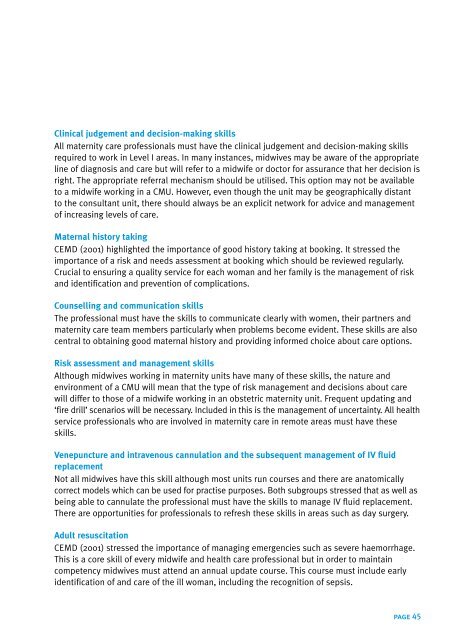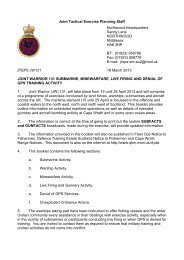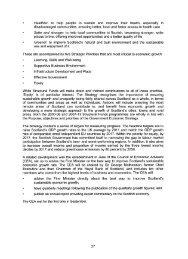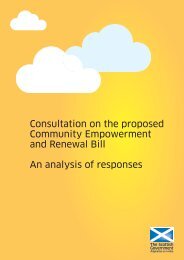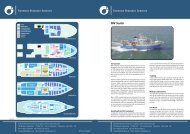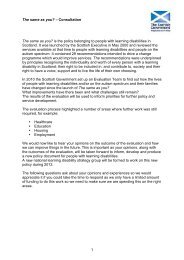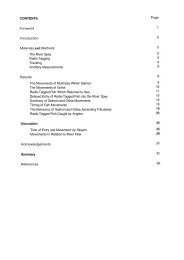Implementing A Framework for Maternity ... - Scottish Government
Implementing A Framework for Maternity ... - Scottish Government
Implementing A Framework for Maternity ... - Scottish Government
You also want an ePaper? Increase the reach of your titles
YUMPU automatically turns print PDFs into web optimized ePapers that Google loves.
Clinical judgement and decision-making skills<br />
All maternity care professionals must have the clinical judgement and decision-making skills<br />
required to work in Level I areas. In many instances, midwives may be aware of the appropriate<br />
line of diagnosis and care but will refer to a midwife or doctor <strong>for</strong> assurance that her decision is<br />
right. The appropriate referral mechanism should be utilised. This option may not be available<br />
to a midwife working in a CMU. However, even though the unit may be geographically distant<br />
to the consultant unit, there should always be an explicit network <strong>for</strong> advice and management<br />
of increasing levels of care.<br />
Maternal history taking<br />
CEMD (2001) highlighted the importance of good history taking at booking. It stressed the<br />
importance of a risk and needs assessment at booking which should be reviewed regularly.<br />
Crucial to ensuring a quality service <strong>for</strong> each woman and her family is the management of risk<br />
and identification and prevention of complications.<br />
Counselling and communication skills<br />
The professional must have the skills to communicate clearly with women, their partners and<br />
maternity care team members particularly when problems become evident. These skills are also<br />
central to obtaining good maternal history and providing in<strong>for</strong>med choice about care options.<br />
Risk assessment and management skills<br />
Although midwives working in maternity units have many of these skills, the nature and<br />
environment of a CMU will mean that the type of risk management and decisions about care<br />
will differ to those of a midwife working in an obstetric maternity unit. Frequent updating and<br />
‘fire drill’ scenarios will be necessary. Included in this is the management of uncertainty. All health<br />
service professionals who are involved in maternity care in remote areas must have these<br />
skills.<br />
Venepuncture and intravenous cannulation and the subsequent management of IV fluid<br />
replacement<br />
Not all midwives have this skill although most units run courses and there are anatomically<br />
correct models which can be used <strong>for</strong> practise purposes. Both subgroups stressed that as well as<br />
being able to cannulate the professional must have the skills to manage IV fluid replacement.<br />
There are opportunities <strong>for</strong> professionals to refresh these skills in areas such as day surgery.<br />
Adult resuscitation<br />
CEMD (2001) stressed the importance of managing emergencies such as severe haemorrhage.<br />
This is a core skill of every midwife and health care professional but in order to maintain<br />
competency midwives must attend an annual update course. This course must include early<br />
identification of and care of the ill woman, including the recognition of sepsis.<br />
page 45


